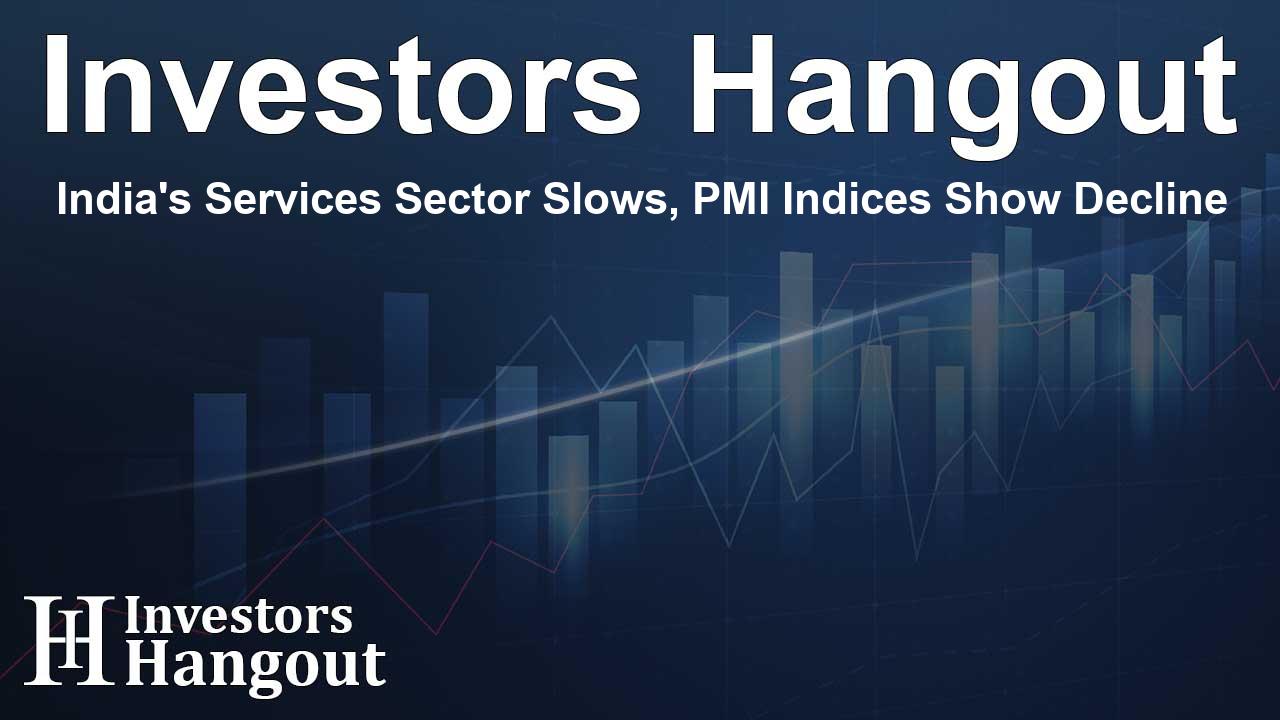India's Services Sector Slows, PMI Indices Show Decline

India's Services Sector Experiences Notable Slowdown
In a recent report, it was revealed that India's significant services sector is experiencing a slowdown, reaching a ten-month low as of September. While the sector continues to display robust growth characteristics, the pace of expansion has notably decreased as demand begins to wane.
Understanding the PMI Trends
The HSBC final India Services purchasing managers' index (PMI), which is compiled by S&P Global, recorded a decline to 57.7 in September, down from a five-month high of 60.9 in August. This decline was not just a minor fluctuation; it was also below a preliminary estimate of 58.9. According to Pranjul Bhandari, chief India economist at HSBC, although the headline business activity index dipped below 60 for the first time in 2024, it remains significantly above the long-term average.
New Business Demand Insights
For over three years, the PMI has consistently stayed above the pivotal 50-mark, which differentiates between expansion and contraction in the economy. However, the sub-index that gauges new business—a critical indicator of overall demand—has fallen to its lowest level since November, while still surpassing historical averages. International demand for services has also been observed to grow at the slowest pace of the year, adding to the sentiment of cautious optimism in the sector.
Job Market and Hiring Trends
Despite the slowdown in demand, the outlook for businesses in the coming year has seen an upturn. This optimism has encouraged firms to maintain hiring practices. The trend of job creation, which has been ongoing for more than two years, picked up slightly compared to August's figures.
Cost Pressures on Businesses
As firms navigate this period of change, they are facing increased cost pressures. There has been an acceleration in cost inflation from the previous month due to rising prices for electricity, food, and various materials. Interestingly, businesses have been passing these extra costs to clients at the slowest pace since February 2022, indicating a cautious approach to pricing strategies amidst rising input costs.
Inflation and Economic Outlook
Recent data indicates that Indian inflation has remained below the Reserve Bank of India's (RBI) target of 4% in both July and August. A recent Reuters poll suggests that inflation is anticipated to average between 4.2% and 4.6% in each quarter up until at least July 2026, signaling a steady outlook.
Monetary Policy Projections
The RBI is projected to maintain its key repo rate at 6.50% soon, with expectations for a gradual cut of 25 basis points by December. This adjustment aligns with the changing economic environment and prevailing inflation trends.
Manufacturing PMI and Composite Index Insights
In conjunction with the services PMI, a manufacturing PMI recently released indicated a dip to an eight-month low of 56.5 in August. The combination of the downturn in both services and manufacturing sectors has resulted in the overall Composite PMI presenting its weakest performance since last November, falling from 60.7 to 58.3 in September. This comprehensive view of the PMI provides a broader understanding of the economic shifts occurring within India.
Frequently Asked Questions
What does a PMI below 60 signify?
A PMI below 60 signifies a slowdown in the growth rate of the services sector, indicating a shift in business activity dynamics.
How does the decline in services PMI affect the economy?
The decline in services PMI can indicate a decrease in consumer demand and business confidence, potentially leading to slower economic growth.
What are the implications of rising cost inflation?
Rising cost inflation can squeeze company margins and may result in higher prices for consumers as businesses pass on increased costs.
What does the RBI's interest rate hold imply?
The RBI maintaining its interest rate suggests a cautious approach to monetary policy in light of varied economic indicators.
How are job creation trends related to PMI movements?
Job creation can be linked to PMI movements; increasing PMI signals business confidence and growth, leading to more hiring.
About Investors Hangout
Investors Hangout is a leading online stock forum for financial discussion and learning, offering a wide range of free tools and resources. It draws in traders of all levels, who exchange market knowledge, investigate trading tactics, and keep an eye on industry developments in real time. Featuring financial articles, stock message boards, quotes, charts, company profiles, and live news updates. Through cooperative learning and a wealth of informational resources, it helps users from novices creating their first portfolios to experts honing their techniques. Join Investors Hangout today: https://investorshangout.com/
Disclaimer: The content of this article is solely for general informational purposes only; it does not represent legal, financial, or investment advice. Investors Hangout does not offer financial advice; the author is not a licensed financial advisor. Consult a qualified advisor before making any financial or investment decisions based on this article. The author's interpretation of publicly available data shapes the opinions presented here; as a result, they should not be taken as advice to purchase, sell, or hold any securities mentioned or any other investments. The author does not guarantee the accuracy, completeness, or timeliness of any material, providing it "as is." Information and market conditions may change; past performance is not indicative of future outcomes. If any of the material offered here is inaccurate, please contact us for corrections.